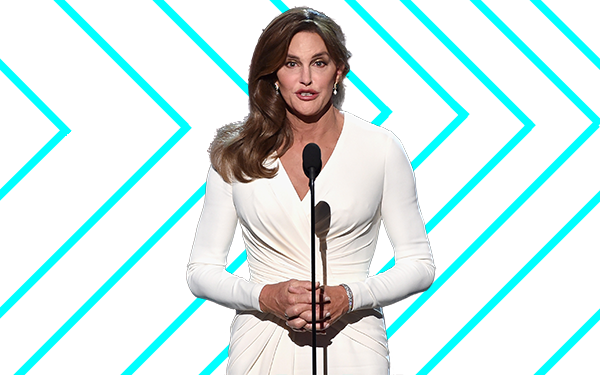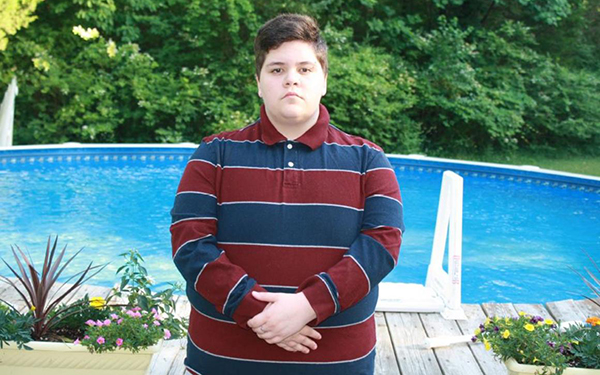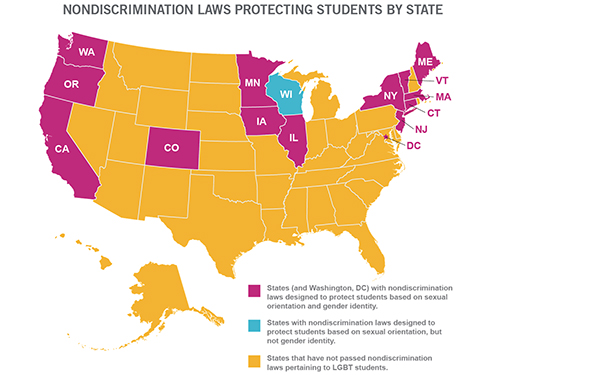After Caitlyn Jenner, a New World for Transgender Students — and a New Civil Rights Battleground

This is one in a series of articles surveying the complexities of gender identity, the evolving political debate surrounding the transgender rights of today’s youth, and the ways in which these issues intersect with the policies and practices of K-12 schools across the country. To see the complete series, click here.
Gavin Grimm doesn’t need any more memories of his body’s betrayal.
In elementary school, his best friend told him that they could no longer hang out because he was born a girl. By 11 or 12, he realized he liked girls but didn’t think he was a lesbian; Grimm can still recall the grief he felt when his 15th birthday cake had a girl’s name on it.
His mother wiped it off and wrote Gavin.
“I don’t want to have to deal with every birthday being a reminder that I was born with this reality — and that parts of that reality will never change,” the Virginia High School student wrote in an essay for Refinery29, an online magazine.
The reminders came anyway.
Last fall, administrators at Gloucester High School decided they would allow Grimm to use the school’s male bathrooms. But a few weeks later, the county school board reversed the decision, voting instead that transgender students must use the bathroom assigned to their sex or a single-stall restroom.
The American Civil Liberties Union has since filed a complaint against the Gloucester County School Board, alleging the measure discriminates against transgender students.
Caitlyn Jenner thrust transgender issues into the national spotlight in a high profile way earlier this year when she sat down with Diane Sawyer to discuss her journey transitioning from the male Olympic athlete that once captivated America to the woman she felt was her true self. And Jenner purposefully steered that conversation toward young people in similar situations in her July 15 acceptance speech of the Arthur Ashe Courage Award at the 2015 ESPYS.
Transgender youth are “learning that they’re different, and they’re trying to figure out how to handle that on top of every other problem a teenager has. They’re getting bullied, they’re getting beaten up, they’re getting murdered, and they’re committing suicide,” Jenner said.
An amendment aimed at ease bullying and discrimination faced by LGBT youth was just shot down by Congress in the latest proposed rewrite of the No Child Left Behind law.
A civil rights campaign turns to the states
But in recent years, LGBT advocates have waged aggressive campaigns—sometimes successfully — in state legislatures and the courts to expand the rights of transgender students, allowing them to use the bathrooms or join sports teams of their preferred gender.
Their efforts have not caught up to other similar movements, such as the campaign for marriage equality — where pro-public sentiment overtook political objections, ending with legalization nationwide by the U.S. Supreme Court last month. But activists say they see a new opening with growing public awareness and support from President Barack Obama’s administration.
“I’m hopeful. There are glimmers of hope throughout the process,” said Nathan Smith, director of policy for the New York-based Gay Lesbian & Straight Education Network. “There’s a long game to it.”
A YouGov poll taken last month found only six percent had not heard about Caitlyn Jenner’s transition; While 14 percent said that identifying as a gender other than the one you were assigned at birth was morally acceptable. Another 39 percent said it wasn’t a moral issue.
By contrast, a 2014 CBS poll found that almost 60 percent of Americans did not support the idea of transgender students picking which bathroom or locker room to use while 26 percent said they should be allowed to use the bathrooms and locker rooms of their preferred gender.
The defeated Senate amendment would have allowed LGBT students to sue their school districts if they failed to protect them or didn’t recognize their rights.
“Surely we can agree that a minority group of students who have long endured bullying and harassment and discrimination deserve the same protections we afford other groups of students,” said Patty Murray, the education committee’s top Democrat.
The measures were supported by a coalition of LGBT and civil rights groups but faced pushback by lawmakers who argued that it was an issue that should be left to local school districts.
Local school boards and universities have already faced allegations of discrimination against transgender students with mixed results. Earlier this year, a federal judge dismissed a lawsuit by a former transgender male student at the University of Pittsburgh at Johnstown, who was reportedly expelled after he refused to use a unisex locker room instead of the men’s locker room. The judge argued his transgender status was not protected under Title IX, the federal amendment which outlawed sex discrimination at schools and universities.
Last year, a federal appeals court ruled that a family can sue a Texas school after their 13-year-old boy hung himself following months of bullying. Jon Carmichael was reportedly subjected to homophobic slurs and stripped to his underwear, abuse the judge ruled could be considered sexual harassment even though Carmichael’s tormentors were male.
In Grimm’s case, the U.S. Justice department weighed in saying the decision of the Gloucester County School Board should be considered sex discrimination under Title IX.
“The plain language of the statute thus affirms Title IX protects all persons, including transgender students, from sex discrimination,” Virginia Assistant U. S. Attorney Clare Wuerker wrote in a statement of interest.
The comments echo the interpretation of Title IX the U. S. Department of Education issued in April 2014. But the statement prompted LGBT groups to ask the department to clarify that the legislation also requires that schools allow transgender students to participate in school activities and adhere to dress codes based on their gender identity. LGBT advocates also want teachers and administrators, who may know a student has transitioned while fellow students do not, to respect transgender students’ privacy by using the names and pronouns that reflect their gender identity.
Without the possibility of an amendment written into federal education law, LGBT activists’ attention will likely remain focused on state legislatures.
Courtesy of the Gay, Lesbian & Straight Education Network. (Current as of July 24, 2015)
Thirteen states (California, Colorado, Connecticut, Illinois, Iowa, Maine, Massachusetts, Minnesota, New Jersey, New York, Oregon, Vermont and Washington) and the District of Columbia have passed laws banning discrimination against students on the basis of both sexual orientation and gender identity. Wisconsin has passed anti-discrimination legislation that protects students only on the basis of sexual orientation. But 36 states still have yet to address issue, and have not yet passed any nondiscrimination laws that apply specifically to LGBT students.
“In the absence of specific federal law, state law becomes even more relevant,” said Erin Buzuvis, a law professor at Western New England University who focuses on Title IX issues. “The next best thing is a state-by-state approach.”
In 2013, California Governor Jerry Brown signed a bill which gave students the explicit right to participate in "sex-segregated school programs and activities, including athletic teams and competitions, and use facilities consistent with his or her gender identity.” Earlier this month, the New York state education department released guidance for school districts about how to foster safe environments for transgender and gender nonconforming students.
The California law—the first of its kind in the country—went a step beyond the state’s previous non-discrimination legislation but did face criticism from a conservative legal group.
“LGBT activists are sacrificing the safety and sanity of our schools to push an extreme political agenda. This battle is no longer confined to California or Colorado; it is spreading to every part of the nation,” Brad Dacus, president of Pacific Justice Institute, said in a 2013 statement. “It is crucial that we act now to prevent a crippling blow to our constitutional freedoms.”
Dacus said the privacy and free speech rights of other students, who might not feel comfortable sharing a bathroom with a biological member of the opposite sex, were being trampled.
In some states that have yet to pass laws, the political stalemate over gender identity and discrimination might be on the verge of collapsing. A measure has been proposed every year for the past decade in the Pennsylvania legislature but never made it out of committee for a vote, according to Levana Layendecker, the communications director for Equality PA, an LGBT advocacy organization.
But this year could be different. In a budget address earlier this year, Pennsylvania Gov. Tom Wolf called for laws that would protect people from being discriminated against based on their sexual orientation or gender identity.
“Last year we got marriage equality and people didn’t think that would happen,” Layendecker said. “It does seem like we are in a different world.”
Caitlyn Jenner photo by Getty Images
Get stories like these delivered straight to your inbox. Sign up for The 74 Newsletter

;)


